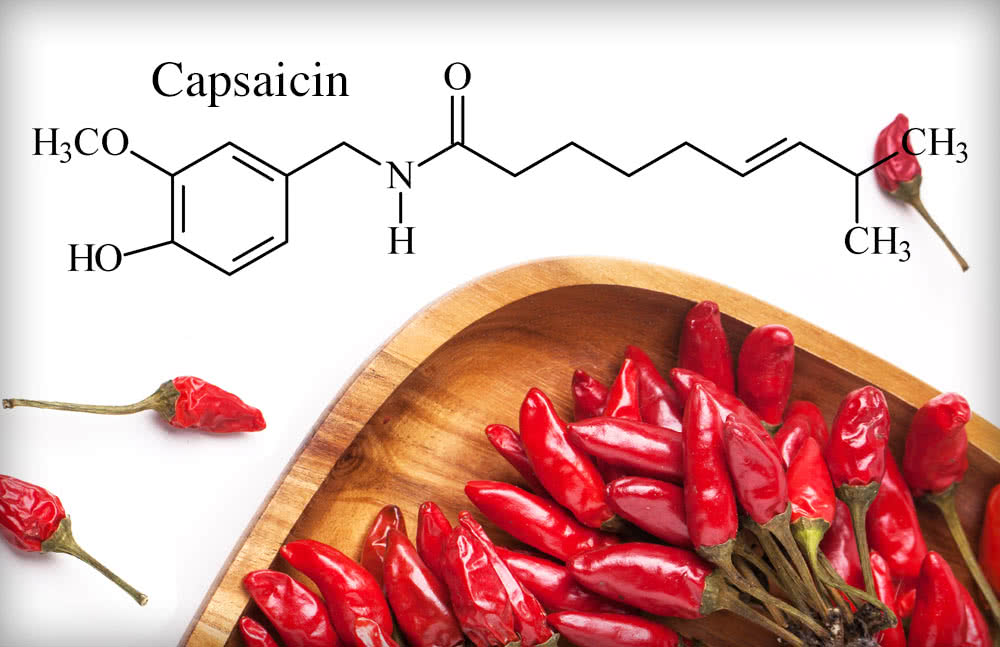Capsaicin
About
-
- Capsaicin is the chemical which makes chilli peppers spicy.
- Capsaicin is most abundantly found in the placenta (white membrane to which seeds are attached) of some chilli peppers.
- Chilli peppers are the fruits of plants of the genus Capsicum which were introduced to the rest of the world from South and Central America by Christopher Columbus.

What happens when humans consume Capsaicin?
-
- The chemical binds to TRPV1 receptors in humans’ nose, mouth, skin, and insides.
- These receptors help in detecting heat (and pain), and are most commonly activated by a rise in temperature.
-
- But capsaicin tricks the TRPV1 receptors into reacting, even though there is no actual temperature rise.
- The brain believes that the body is on fire and causes the painful and burning sensation associated with consuming chilis.
- The body then tries to cool down by:
- Sweating
-
- Red face: It is caused because capillaries just below the skin dilate, as blood rushes to the surface of the body, where it can radiate heat away more easily.
- The runny nose or teary eyes (if capsaicin happens to come in contact), gut cramps and diarrhoea are also the body’s attempt at expelling the heat-causing element.
Uses of Capsaicin
- Capsaicin has been widely used as a flavouring and preservative agent in food formulations
- Medical Field:
- Topically applied capsaicin is useful in alleviating pain (analgesic) associated with diabetic neuropathy and chronic musculoskeletal pain.
- It is used to increase the bladder capacity and reduce incontinence in patients with bladder hyperactivity.
- It exhibits good antioxidant activity in the food matrix and antimicrobial activity against foodborne pathogens and viruses.
| Did you know?
Capsaicin is the principal constituent of oleoresin capsicum commonly known as pepper spray. |
Harmful effects
- High concentrations of capsaicin are harmful to humans. It can cause
- Heartburn, gastrointestinal pain, and diarrhoea.
- Long-term ingestion of high levels of capsaicin may lead to several chronic gastrointestinal disorders.
Why in news?
- Food safety authorities in Denmark have recalled three types of South Korean spicy instant noodles over possible risks of acute poisoning as the capsaicin content in the noodles is so high that it can pose a health hazard especially to children.
Sources
- https://indianexpress.com/article/explained/explained-sci-tech/why-chilis-burn-why-humans-still-love-them-9394150/
- https://www.sciencedirect.com/topics/neuroscience/capsaicin
- https://www.sciencedirect.com/science/article/abs/pii/S0953711208000756
Subscribe
Login
0 Comments
